After many long hours of hard labour under the burning heat of the Arabian sun, Bengali* construction worker Jakir Abdur Rashid, 39, was having his lentil soup dinner on his rickety wooden bed when he heard a huge explosion that shook his surroundings. The building in the Salmaniya neighbourhood of the Bahraini capital Manama collapsed, and Abdur Rashid would be buried under its rubble.
“Only a few hours before his death, he was in the room next to me talking about the scent of death we were smelling in this crumbling house,” said Jelfash Abdur Rashid, recounting his elder brother Jakir’s last moments. “I survived, but he didn’t.”
Jelfash spoke to us whilst waiting in his country’s embassy for the arrangements to transport his brother’s body to Bangladesh. Jakir is survived by Jelfash and two other brothers who all work in Bahrain.
The explosion took place on the October 9, 2018, following a leak from a gas cylinder, taking the lives of three other workers from Bangladesh and injuring 40 more, some gravely, who are being treated in the Salmaniya government hospital.
“They will labour in pain”
Following the accident, Jelfash Abdur Rashid moved to the Karama Centre for Social Care, a government-run shelter, with other workers who survived the building collapse, as well as 100 other homeless people who couldn’t find a place to stay after authorities tore down the neighbouring building affected by the explosion. Dozens of workers refused to stay in the shelter, choosing to leave the hospital before the end of their treatment in order to quickly return to work.
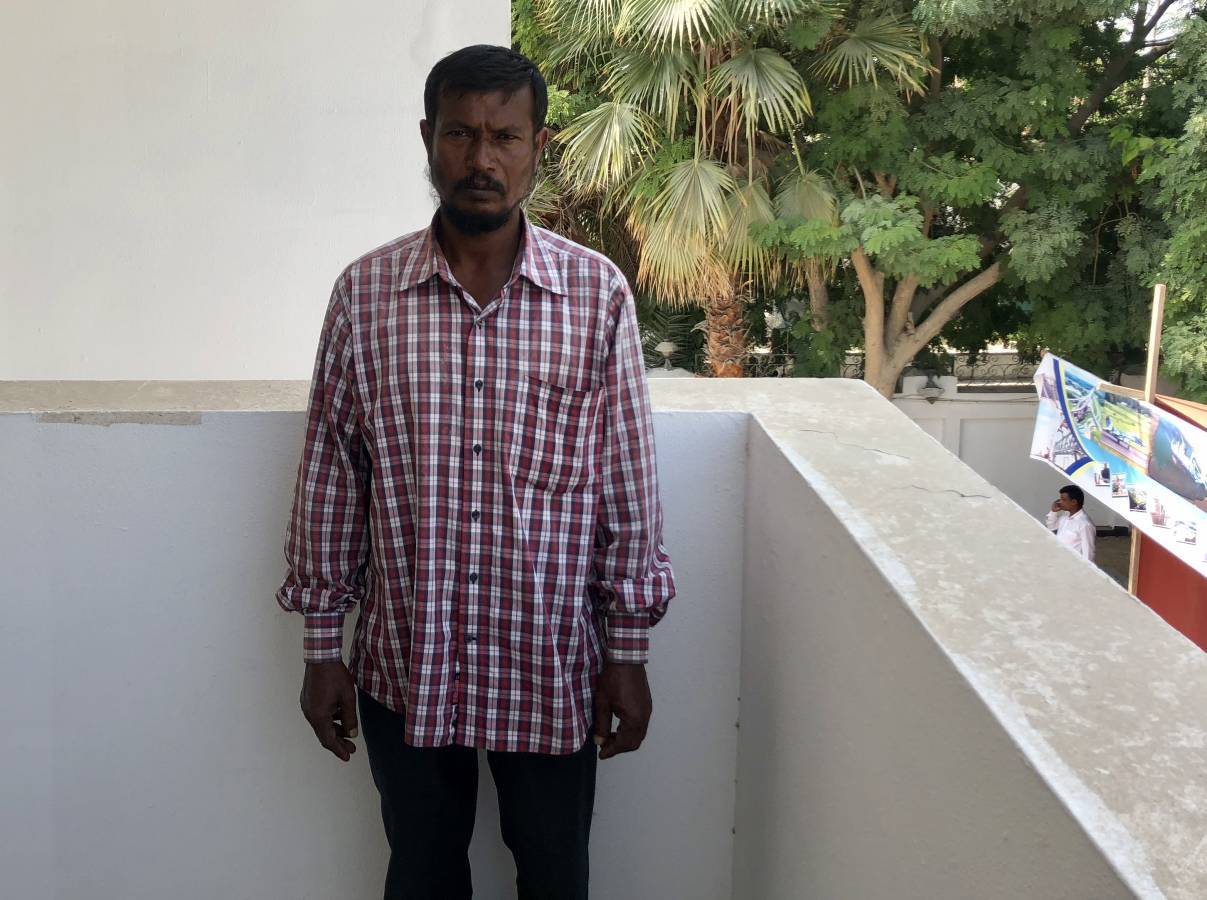
Bangladesh’s ambassador to Bahrain, Mominur Rahman, explained his countrymen’s rush to this writer: “The family members of those workers will die of hunger if their relatives do not send them back some money. They will labour in pain for their families and children.”
Jakir and Jelfash are amongst a hundred Bengali workers who exist in an environment which lacks the most basic safety standards. Indeed, their two-floor building is not registered as a residence “at risk of collapse” with the Manama Municipality.
Thousands of Asian workers are living in similar conditions, according to the head of the municipality, across more than a hundred properties in the capital and the country.
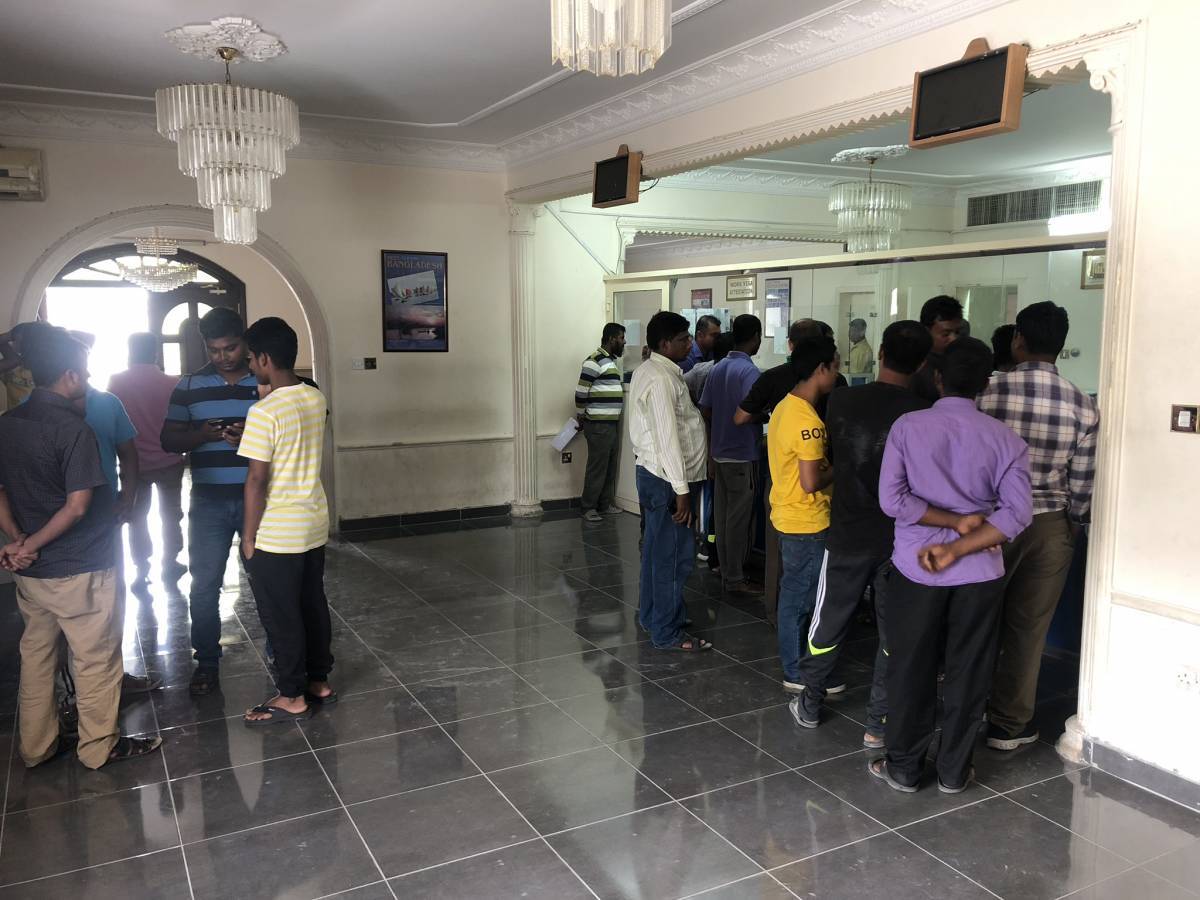
Indeed, despite government statements going back more than 12 years proclaiming a resolution to the problem, the weakness of inspection mechanisms and the absence of a law regulating workers’ residences have led to the repetition of such fatal accidents on an almost annual basis.
Alarm-bells
The testimonies of seven workers who lived in the collapsed building at Salmaniya reveal that 100 workers lived in 11 rooms: an average of nine workers for tiny room. The workers sleep on old beds with battered mattresses, and cook on small stoves fuelled by gas cylinders in the same rooms they live and sleep in.
We examined five properties which were stacked with hundreds of Asian workers, in what appeared to be a textbook image of a hazardous environment. The properties were located in the cites of East Rifaa in the Southern Province, Salmabad in the Central Province, and Gudaibiya east of the capital Manama.
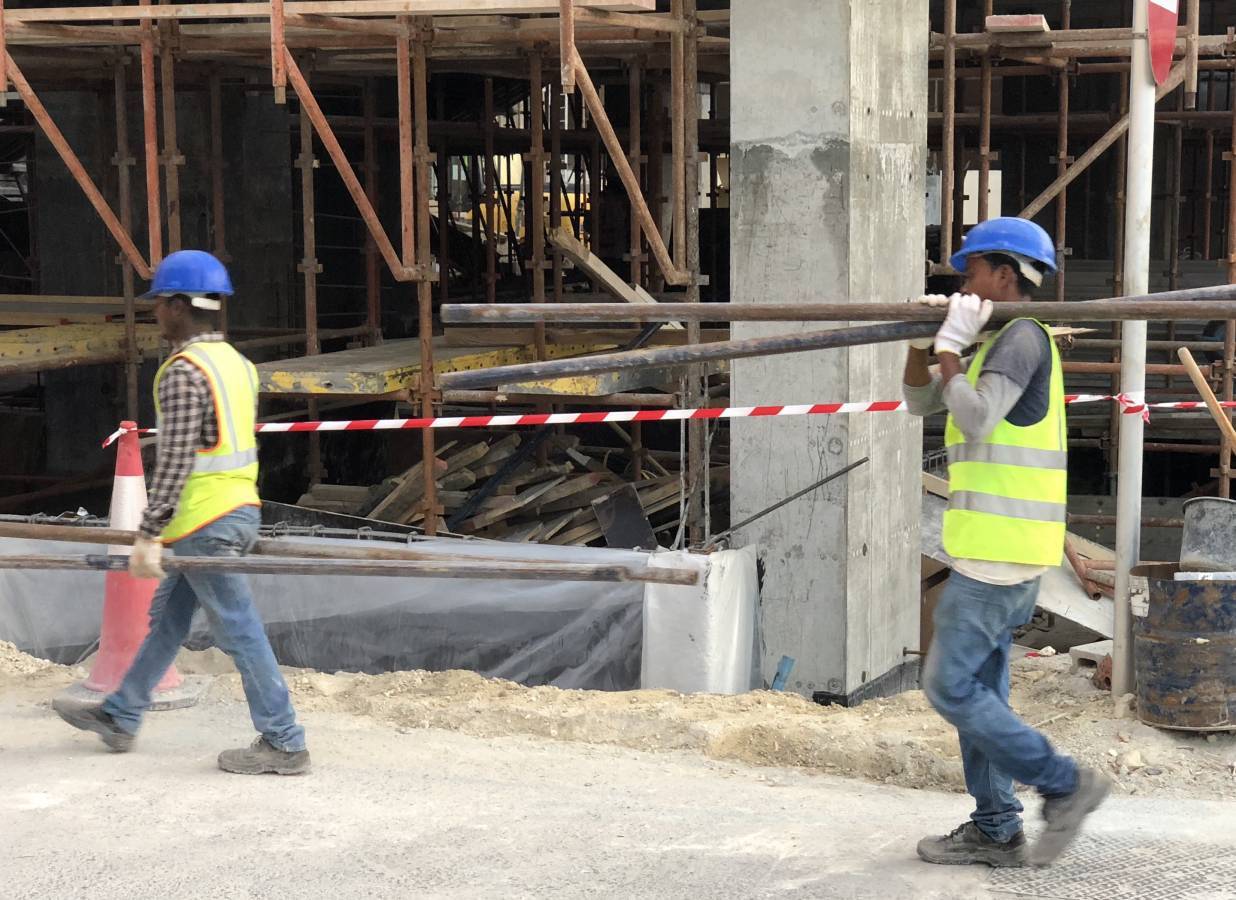
After talking to three landlords about the condition of their residences, we received the reply that their tenants’ safety is the responsibility of their employers. Two other landlords, meanwhile, told us that they were not responsible for the subletting of their properties by their two tenants.
The workers live in small ramshackle rooms made of wooden boards, with old and overburdened electrical wiring. New (and unlicensed) wiring is regularly introduced, with power overloads an ever-present risk. There is also an absence of alarm systems and firefighting equipment, as well as the prevalence of irregular kitchens, the prohibited use of gas cylinders in rooms, and the lack of ventilation shafts.
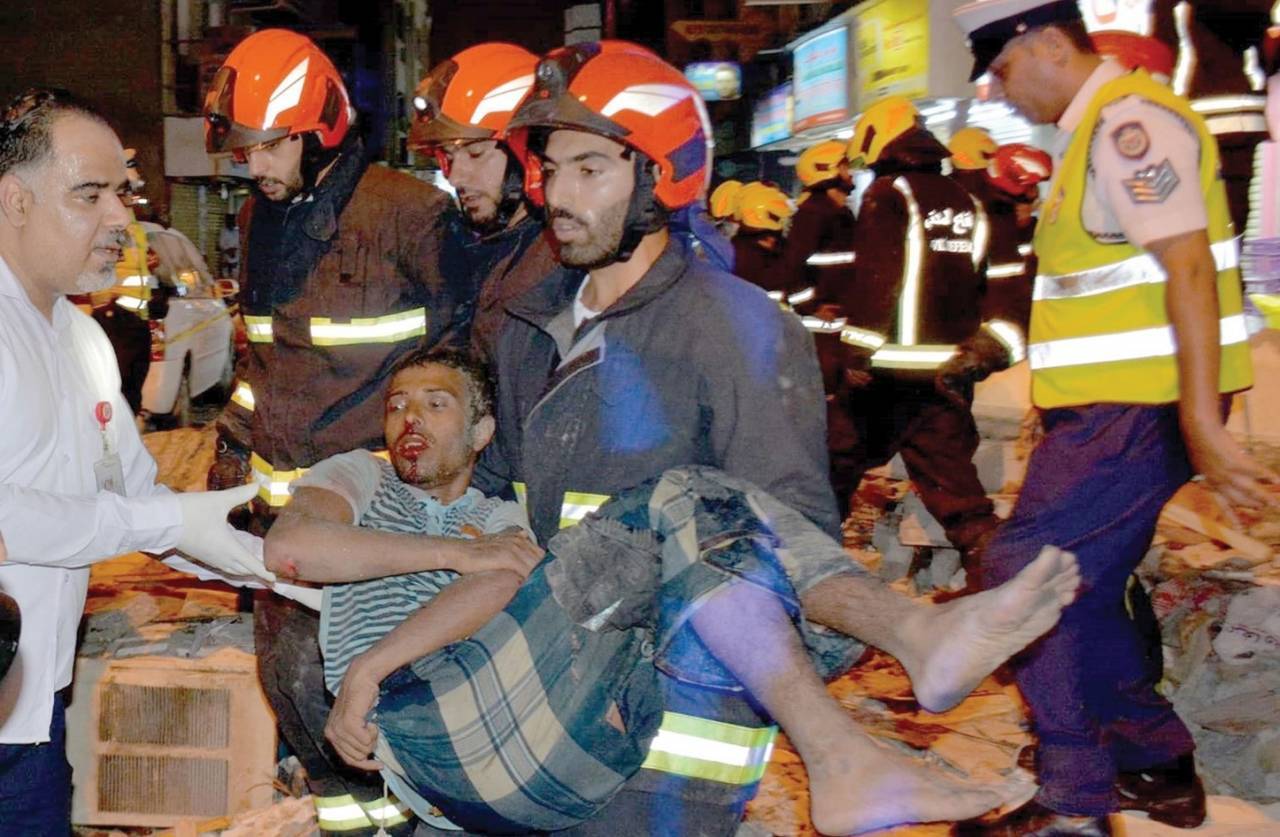
One of the property landlords asked: “Is a landlord supposed to go every day to check the safety of their tenants?”
Meanwhile, the head of occupational safety at the Ministry of Labour, Mustafa al-Sheikh, said that the ministry is responsible for the provision of safety standards for the approximately 150,000 foreign workers living in 3,147 registered residences. However, according to a survey conducted by the Regulatory Authority of the Labour Market last year, the total number of foreign workers in the country’s private sector has exceeded half a million – in addition to 80,000 migrants who are officially recognised as illegal residents by the authorities.
Ultimately, only 23% of foreign worker residences are monitored for safety standards and employee rights by the Ministry of Labour, whereas 77% are outside the regulatory purview of the Bahraini government.
Legal contradictions
The Ministry of Municipalities is also entrusted with regulating the arrangements of workers’ residences alongside the Ministry of Labour. However, the executive regulations of the 2006 Municipalities’ Law seem to contradict the articles of the Labour Ministry’s Order No.40 (of the year 2014), regarding the necessary conditions required in these residences.
For instance, Article 14 of the executive regulations of the 2006 Municipalities’ Law stipulates that a landowner must register his property with the relevant municipality if he rented it out, and the law obligates him to fulfil health, security and safety standards within thirty days of the signing of a contract. This contrasts with the fifteen days stipulated by the 2014 Executive Order.
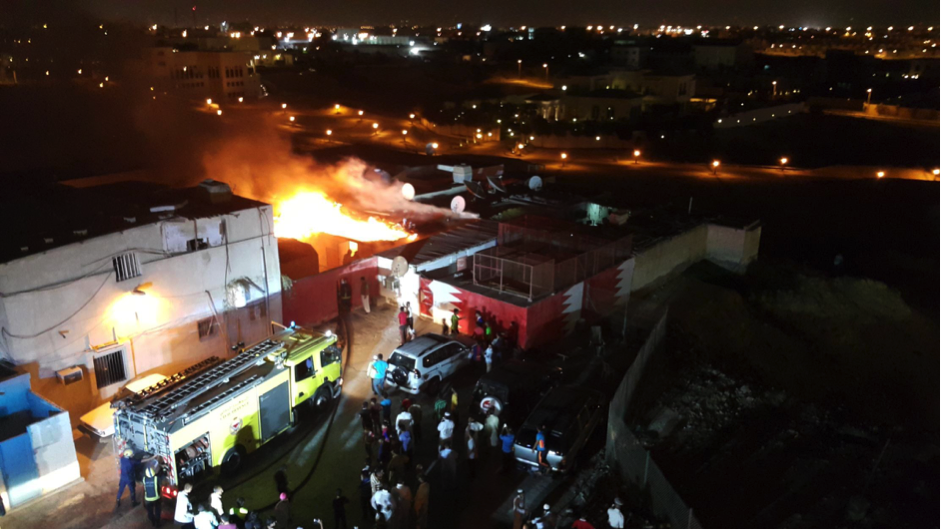
Furthermore, while the Municipalities’ Law stipulates that every resident should be provided with 40 feet of room space, a minimum ceiling height of ten feet, and a maximum restriction of eight people per room; the Executive Order on the other hand allocates one room per worker, a minimum room size of four metres, lighting and adequate ventilation, the provision of a dining room and electrical appliances, and finally, for no more than eight workers to share a single bathroom.
However, al-Sheikh says that the ministerial order is not binding and its violators are not punished.
A lack of inspectors
In general, landlords do not report the condition of their properties to the municipalities, said the head of the Manama Municipality Mohammed al-Khazai. Meanwhile, the municipality fails in its role to find offenders due to its lack of inspectors.
According to al-Khazai, only four inspectors are allocated for the province of Manama (which encompasses within its jurisdiction the collapsed residence at Salmaniya) – out of the 20 he says are required.
It is not only the Bahraini municipalities which suffer from a staff shortage, however. Al-Sheikh said that while the municipalities do notify the Ministry of Labour of the properties which they have registered, the ministry also has its own serious shortfall in the necessary number of inspectors – which number only 30 in total.
“Attractive paint and a decorated house from the outside,” was how the head of Manama’s municipality described the reason for his employees’ failure to discover and report the condition of the collapsed building in the lead-up to the Salmaniya disaster.
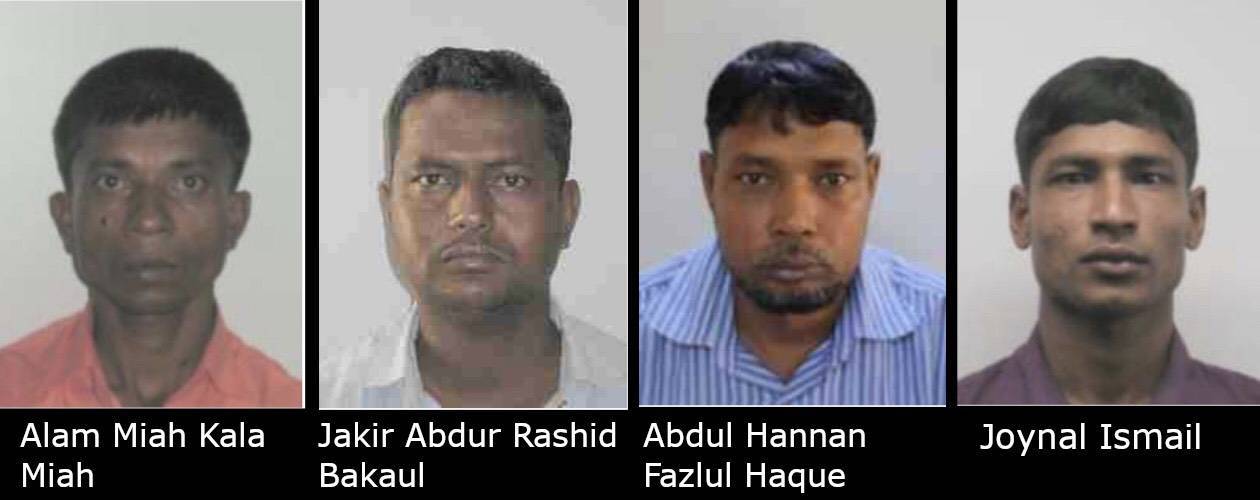
“It didn’t cross the minds of the inspectors that it was a collective residence or was on the verge of collapse,” al-Khazai said. “And it was not subject to any inspections by the competent authorities, but even if they knew, there are not enough inspectors to monitor all the residences.”
He added: “They give us at least one inspector per residential complex in the capital, and we have 11 complexes. Honestly, the inspectors try, but covering all the houses is difficult.”
Additionally, municipality inspectors require permission from the Public Prosecution in order to enter residences and check the number of its residents, with the length of this process constituting “another dilemma,” according to al-Khazai.
It should also be noted that whilst the collapse of the Salmaniya residence was the result of the explosion of a gas cylinder, this cylinder was not the only one found in the ad-hoc traditional kitchens, with police extracting over 50 more, according to al-Khazai.
The Bahraini Civil Defence has warned of the danger of gas cylinders inside buildings or balconies. Current procedures dictate that municipality inspectors inform the civil defence of any safety-related flaws, allowing civil defence inspectors to locate and remove the violation. However, as with its governmental counterparts, the civil defence too suffers from a lack of inspectors, preventing it from attending to all the faulty buildings identified by the municipality.
Landlords and employers: a shared interest
The landlord of the Salmaniya residence has since been arrested pending investigation, and may face criminal charges for subletting the property to workers. However, such a step does not address the issue of hundreds of other landowners who divide their properties and rent them out to factory and company owners who, in turn, use them to house their workers.
Such an arrangement is highly profitable for the real-estate owners, who are virtually guaranteed that their properties will be quickly rented on long-term contracts and, by virtue of the number of tenants, at a good price.
The same cost-effective principle applies to the hundreds of employers looking to house their workers in low-cost residences – leaving the worker as the victim of a shared landlord-employer interest.
According to Jaafar Ibrahim, the spokesman of the Free Labour Unions Federation, the main problem arises when the worker has to live in a cheap house to save as much of his meagre salary as possible in order to help his family back home.
“If you ask anyone in Bahrain about the decaying houses which are on the verge of collapse, he will tell you that surely there are Bengali workers living inside,” he said.
Various estimates have been cited by workers for the sum of money they receive from their employers to rent a shared flat, ranging from 15 to 30 Bahraini Dinars ($40 to $80 US Dollars).
Pakistani worker Afaal Janid, 27, works in an electrical workshop in the province of Muharraq. He says that he was forced to rent a small room with eight other workers because of the “very meagre” amount he received from the workshop’s owner, of 20 Dinars.
“I never forget the first day, I can’t even describe it as a homeless camp,” Janid recalled. “I saw sleeping bodies stuck to the floor with no space separating them from a dirty and primitive bathroom, and [with] a corroded gas cylinder above my head.”
“The only thing that we had in common was our poor families who waited for help,” he added.
On the other hand, the profit margin made by the landlords can be striking. Taking the size of the collapsed Salmaniya residence for instance, which could fit a maximum of ten people, if the property had been rented out to a single family the landlord would have been unable to make much more than 300 Bahraini Dinars (approximately $800 US Dollars) per month, based on the property prices of the surrounding area.
In reality, five workers who lived in the Salmaniya building told us that the landlord was receiving 20 Dinars ($50 USD) from each worker – in other words, a total of 2,000 Dinars ($5,300 USD) every month from the 100 workers who lived in the building.
Before perishing in the Salmaniya fire, Abdul Hannan Fazlul, 53, was working as a carpenter in the Al-Jamil Construction Company. He would leave behind three children, a wife and an elderly mother in his Bengali homeland, all of whom used to wait for the remittances he sent back home out of a salary of $265 a month.
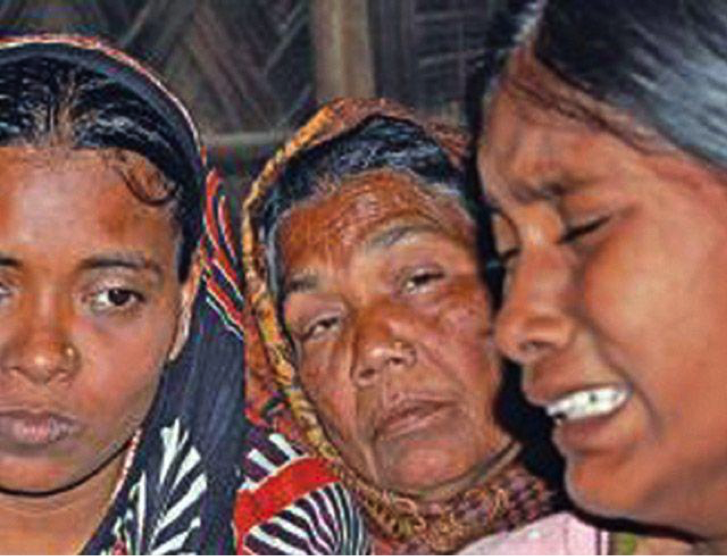
After learning the news of her husband’s death, Fazlul’s wife back home was transferred immediately to a hospital. In a phone conversation we had with the aggrieved widow from her hospital bed, having fainted from shock, she said that her family were now without any source of income, adding that she had received a sum of 100 Bahraini Dinars from the Bengali embassy in Bahrain.
“The sum may help my children now, but we can die of hunger after that,” Fazlul’s widow said. “I have lost my husband, and my children are now fatherless, and I still don’t know until now who is responsible and who can claim his justice.”
A few hours before the publication of the investigation, and perhaps a permanent reminder of the continuous dangers which face foreign workers in the Arabian Gulf, parts of a residence designated by the government as “at risk of collapse” fell apart. The event also took place in Salmaniya – the same area was witness to the deadly tragedy of last October.
No victims fell in this latest incident, yet for many of Bahrain’s foreign workers, an ordeal in which they seem to be awaiting death seems to be ongoing nonetheless.
*A designation used in the Arabian Gulf countries; contrary to identifying the worker as ‘Indian’ or ‘Pakistani’, labels which indicate that the worker lacks any rights or dignity, working very long hours for an extremely meagre wage – the confiscation of the passport of a ‘Bengali’, or even his death, may on the other hand not even be considered newsworthy.
This story was produced with support from the Global Investigative Journalism Network (GIJN) and as part of the ‘Migration Journalism Fellowship’ programme, launched in cooperation with the International Labour Organisation (ILO) and in partnership with the Ethical Journalism Network.
Raseef22 is a not for profit entity. Our focus is on quality journalism. Every contribution to the NasRaseef membership goes directly towards journalism production. We stand independent, not accepting corporate sponsorships, sponsored content or political funding.
Support our mission to keep Raseef22 available to all readers by clicking here!
Interested in writing with us? Check our pitch process here!



